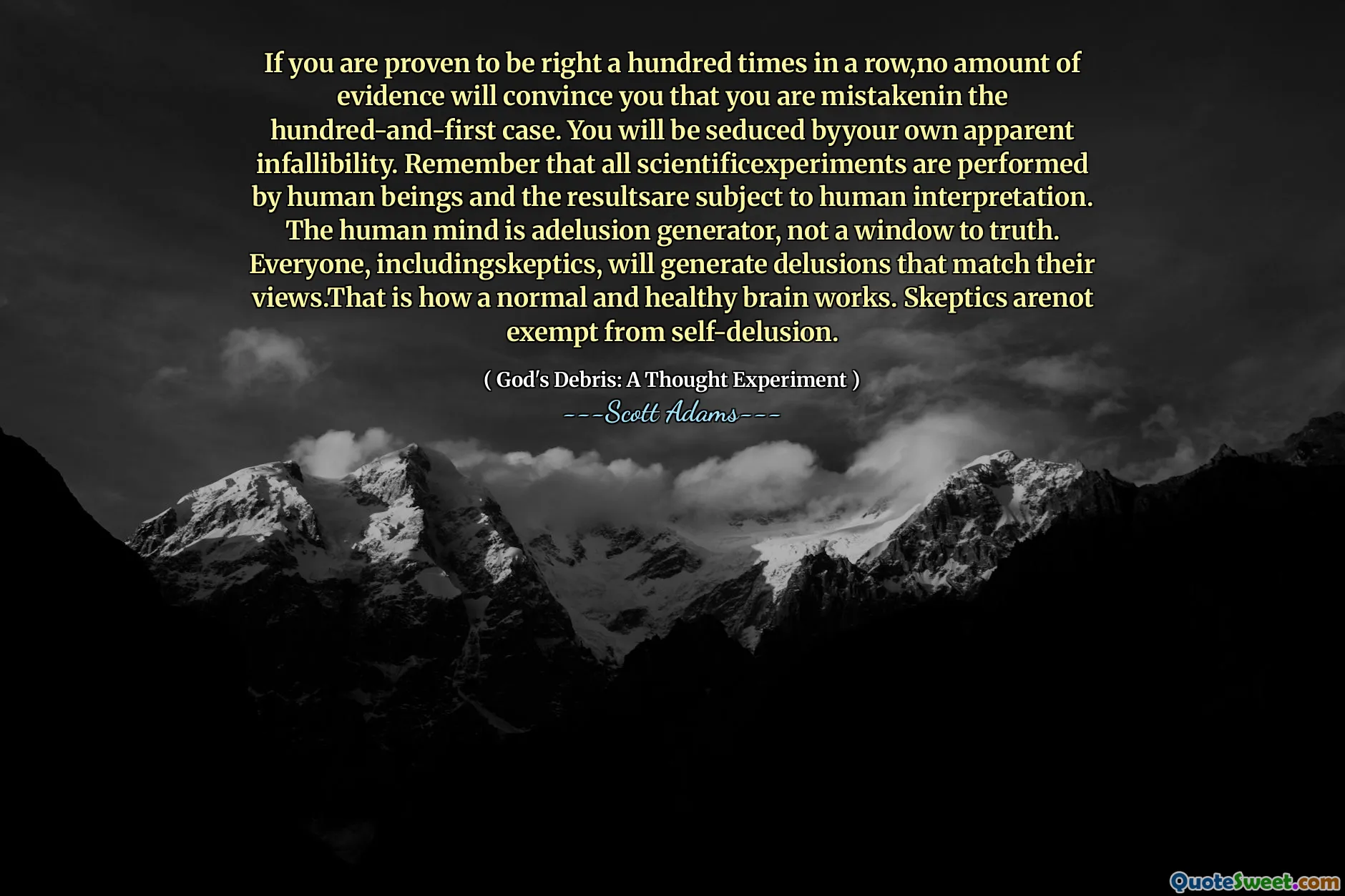
If you are proven to be right a hundred times in a row,no amount of evidence will convince you that you are mistakenin the hundred-and-first case. You will be seduced byyour own apparent infallibility. Remember that all scientificexperiments are performed by human beings and the resultsare subject to human interpretation. The human mind is adelusion generator, not a window to truth. Everyone, includingskeptics, will generate delusions that match their views.That is how a normal and healthy brain works. Skeptics arenot exempt from self-delusion.
The excerpt from "God's Debris" by Scott Adams highlights the inherent biases in human reasoning and perception. It suggests that a person can become so convinced of their own correctness that they ignore contrary evidence, leading to a sense of infallibility. This rigidity can blind individuals to the complexity of truth and make them vulnerable to self-delusion, regardless of how many times they may have been right in previous situations.
Adams emphasizes that scientific findings are not purely objective; they come from human minds that interpret results through their own filters. This concept implies that everyone, including supposed skeptics, creates delusions that affirm their pre-existing beliefs. Thus, the pursuit of truth is complicated by the natural tendencies of the mind, making it essential to remain open to different perspectives and to question one's own conclusions continually.











